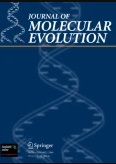Ver ítem
- xmlui.general.dspace_homeCentros e Institutos de InvestigaciónCICVyA. Centro de Investigación en Ciencias Veterinarias y AgronómicasInstituto de BiotecnologíaArtículos científicosxmlui.ArtifactBrowser.ItemViewer.trail
- Inicio
- Centros e Institutos de Investigación
- CICVyA. Centro de Investigación en Ciencias Veterinarias y Agronómicas
- Instituto de Biotecnología
- Artículos científicos
- Ver ítem
Detection of an Alphacoronavirus in a Brazilian Bat (Molossus sp.)
Resumen
Due to the COVID-19 pandemic and the uncertainty about aspects of its origin, in recent years there has been an increased interest in investigating coronaviruses in wild animals. Bats are hosts of the greatest diversity of coronaviruses to date, including the ancestors of viruses that have caused outbreaks in humans. Although in Brazil, information on coronaviruses in bats has expanded, still they remain unrepresentative. To help shed some light on this
[ver mas...]
Due to the COVID-19 pandemic and the uncertainty about aspects of its origin, in recent years there has been an increased interest in investigating coronaviruses in wild animals. Bats are hosts of the greatest diversity of coronaviruses to date, including the ancestors of viruses that have caused outbreaks in humans. Although in Brazil, information on coronaviruses in bats has expanded, still they remain unrepresentative. To help shed some light on this matter, we collected 175 samples from bats of different species from two Brazilian states. Here, we report the previously unknown presence of an alphacoronavirus in a bat (Molossus sp.) from Ceará. The phylogenetic analysis showed close relationships with alphacoronaviruses from Brazil and Argentina, but it was not possible to determine the subgenus or species of this virus using RNA-dependent RNA-polymerase (RdRp) domain of the nsp12 protein-coding sequence as it was distant from the specimens considered by the International Committee on Taxonomy of Viruses (ICTV). Finally, by performing High-Throughput Sequencing, we were able to find contigs mostly belonging to domains of the replicase of bat coronaviruses related to American bats of the Molossidae and Vespertilionidae families.
[Cerrar]

Autor
Molina, Cesar L.;
Magalhães, Meylling M.;
Rodrigues, A.C.;
Taniwaki, Sueli Akemi;
de Souza Silva, Sheila Oliveira;
Konig, Guido Alberto;
Brandão, Paulo Eduardo;
Fuente
Journal of Molecular Evolution 93 (2) : 257-266 (April 2025)
Fecha
2025-04
Editorial
Springer
ISSN
1432-1432
0022-2844
0022-2844
Formato
pdf
Tipo de documento
artículo
Palabras Claves
Derechos de acceso
Restringido
 Excepto donde se diga explicitamente, este item se publica bajo la siguiente descripción: Creative Commons Attribution-NonCommercial-ShareAlike 2.5 Unported (CC BY-NC-SA 2.5)
Excepto donde se diga explicitamente, este item se publica bajo la siguiente descripción: Creative Commons Attribution-NonCommercial-ShareAlike 2.5 Unported (CC BY-NC-SA 2.5)


